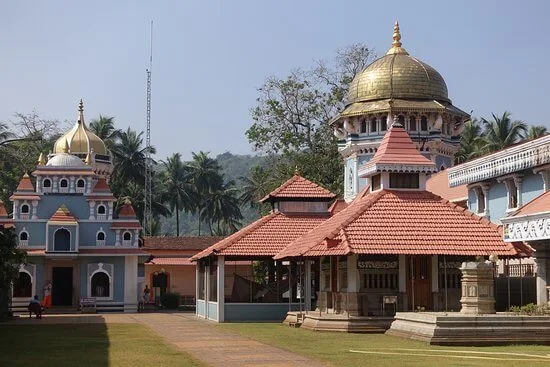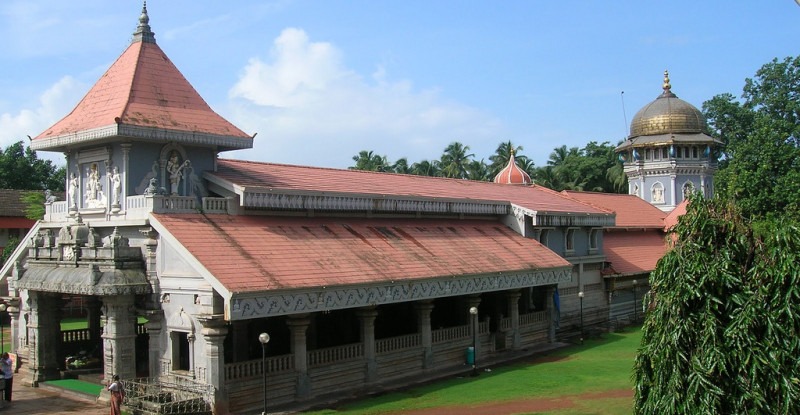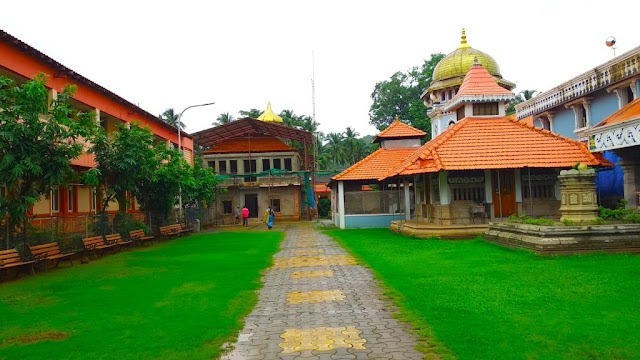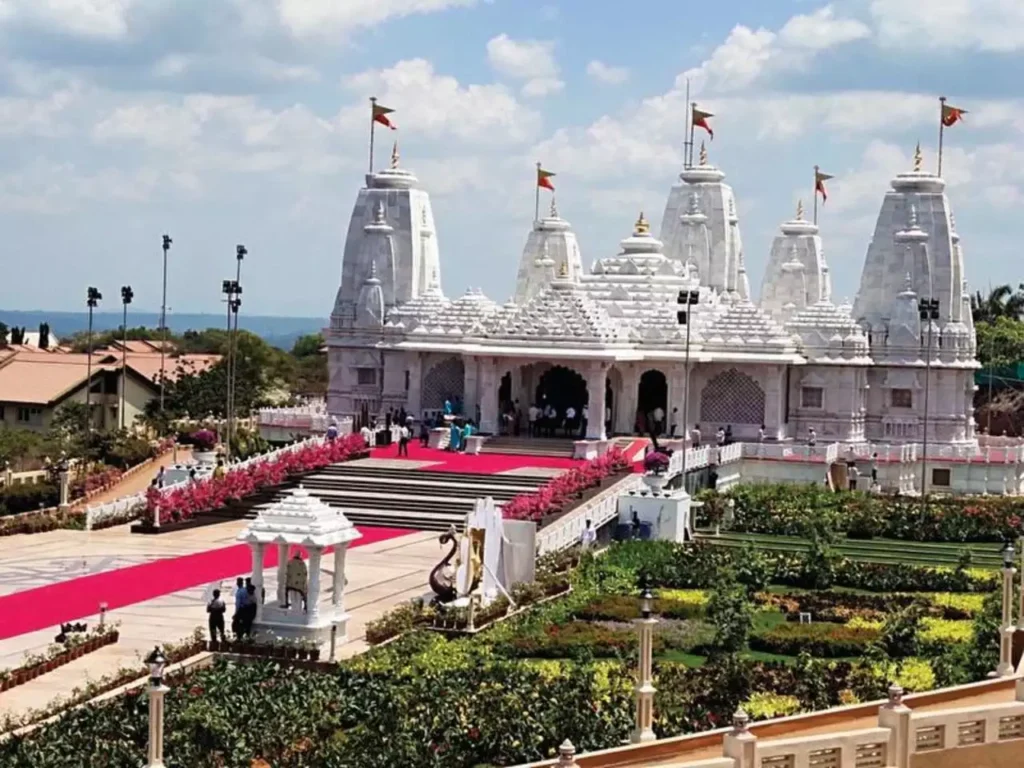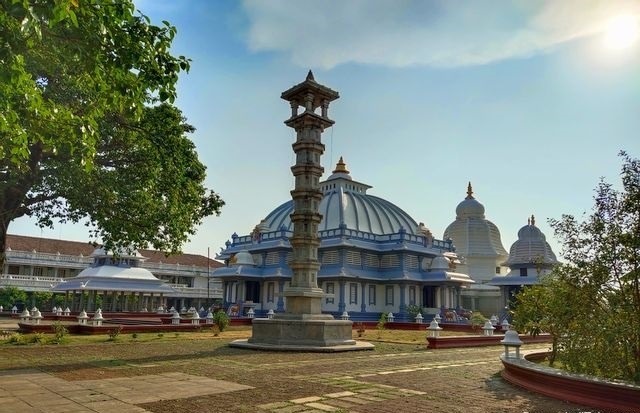
Mahalasa Narayani temple mardol
The Mahalasa Narayani Temple in Mardol, Goa, is a popular temple dedicated to the Goddess Mahalasa, who is identified with Mohini, the female avatar of the God Vishnu. It is situated about 20 kilometers from the state capital Panaji.
(Visiting Hours: Monday To Sunday 6.30 Am To 9.00 Pm, No Entry Fee)
Dress Code: Modest Attire
View Location
The Mahalasa Narayani Temple is dedicated to the Goddess Mahalasa, an incarnation of Lord Vishnu and consort of Lord Narayana. Historically, the temple has its roots in Verna, Goa, where it was originally established. Due to Portuguese persecution in the 16th century, the deity was shifted to its current location in Mardol to protect and preserve the sanctity of the temple.
READ ALSO :MAHALASA NARAYANI TEMPLE, VERNA
The temple is an architectural marvel, showcasing a blend of traditional Goan temple architecture with influences from other Indian styles. Key features include the Deepastambha, a prominent 21-tiered brass lamp tower, which is lit during festivals, creating a mesmerizing sight. The Sabha mandap, a large hall where devotees gather for prayers and rituals, has a ceiling and walls adorned with intricate carvings and paintings depicting various mythological scenes. The Garbhagriha, the inner sanctum where the idol of Mahalasa Narayani is enshrined, depicts the deity with four hands holding a Trishul, a sword, a damaru, and a bowl. Additionally, the Rangmandap, a beautifully decorated hall used for cultural and religious activities, features elaborately carved pillars and an ornamental ceiling.
Mahalasa Narayani is revered as a powerful and benevolent deity. Devotees believe that worshiping her can bring prosperity, remove obstacles, and provide protection. The temple is particularly famous for its annual festivals, including the Magha Jatra in February, a grand festival celebrating the divine presence of Mahalasa Narayani with various rituals, processions, and cultural programs. Navratri in October is another significant festival, marked by vibrant celebrations, devotional songs, and traditional dances in honor of the goddess.
The temple follows a strict schedule of daily rituals. These include the Kakad Aarti, the first prayer of the day performed at dawn; the Madhyahna Pooja, the main worship ritual involving elaborate offerings and prayers conducted at midday; and the Shej Aarti, the final prayer of the day conducted before the temple closes for the night. Devotees offer flowers, coconut, and sweets to the deity, seeking blessings and divine grace. The temple also serves prasad (blessed food) to visitors, symbolizing the goddess’s benevolence.


